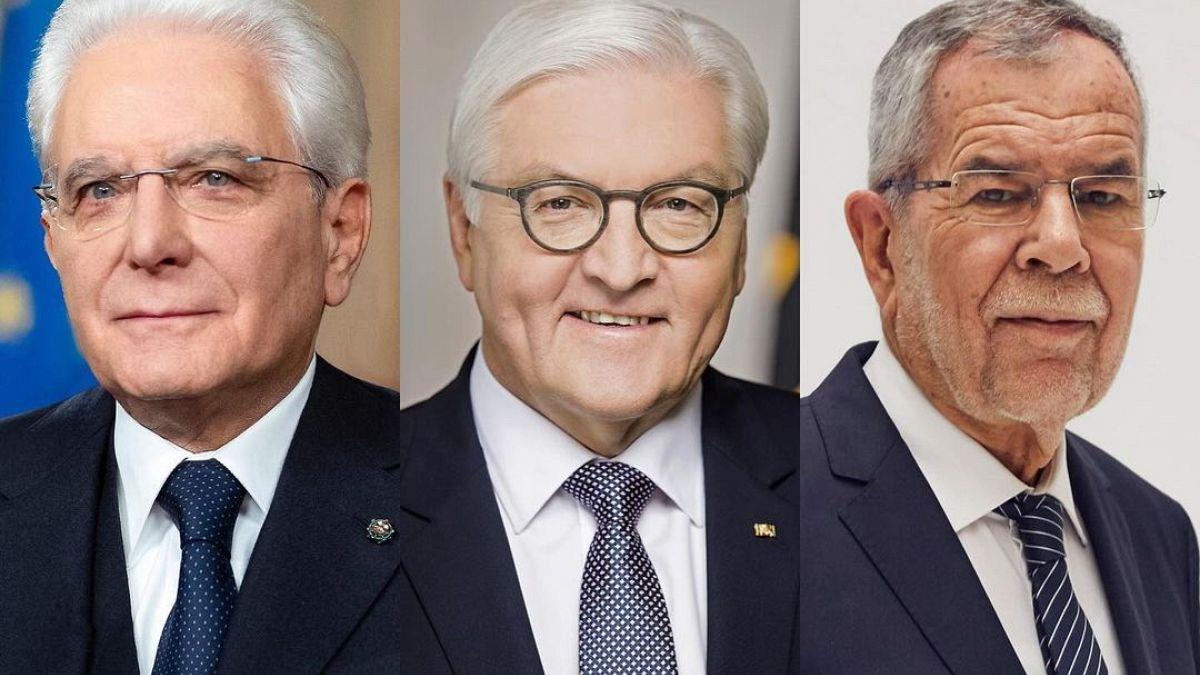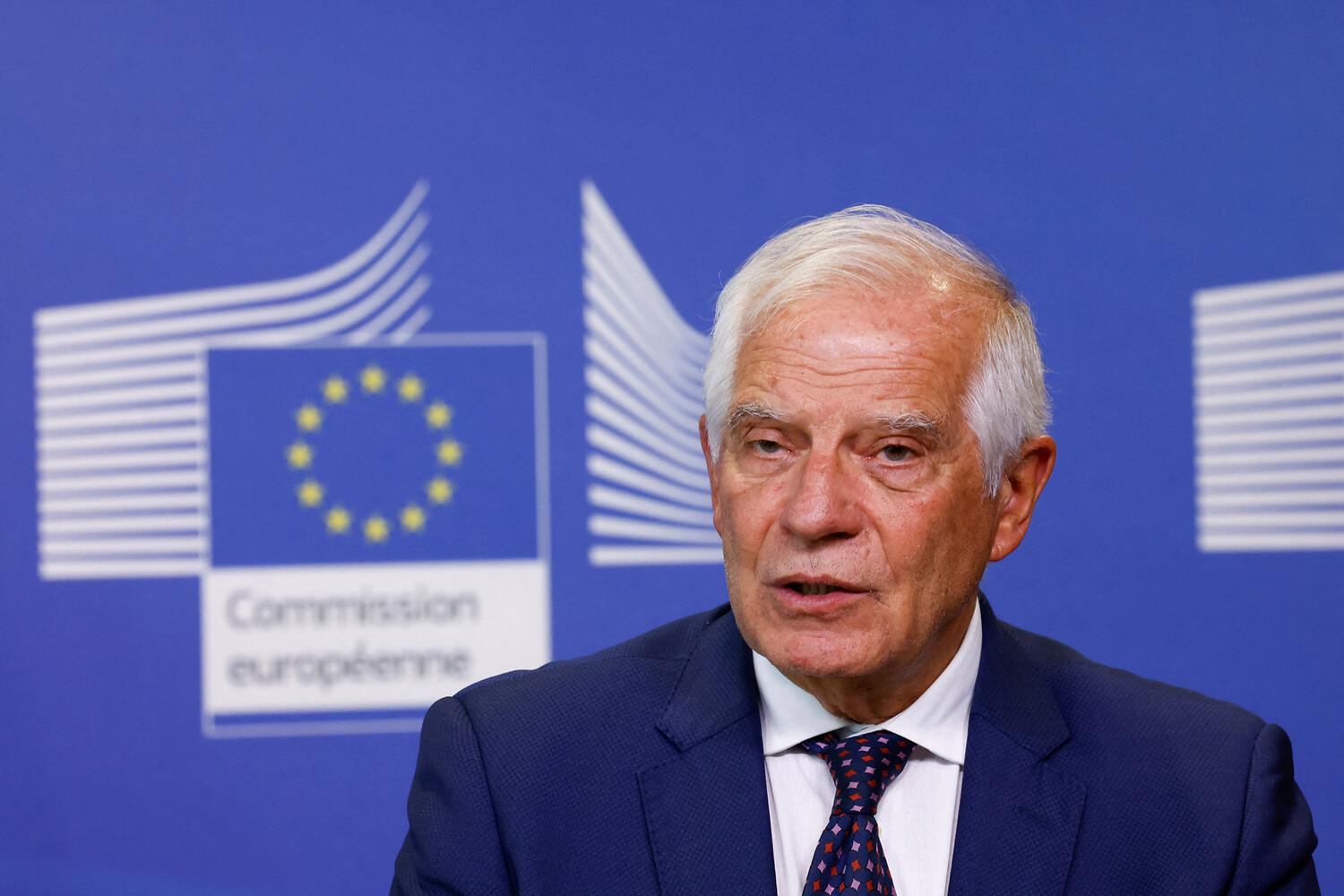European presidents against far-right influence in EU elections Unity in diversity
On May 11, the presidents of Italy (Sergio Mattarella), Germany (Frank-Walter Steinmeier) and Austria (Alexander van der Bellen) issued a joint declaration, which in fact became their manifesto ahead of the upcoming June 2024 elections to the European Parliament. The whole spirit of the document clearly indicates that it is directed against the policies of the far-right parties well on their way to success in this election. Therefore, quite unspontaneously, the beginning of the declaration emphasises the arrival of a decisive stage "for the preservation of democracy in Europe and in many regions of the world". In light of this, this year appears to be "crucial in defining the roadmap for the coming decades". And then the three presidents (who, although exercising largely ceremonial duties, are heads of state) declared a threat to "our fundamental values of pluralism, human rights and the rule of law". This raises concerns about preserving the basis of a "democratic order" in which "the rights of everyone, especially minorities, are guaranteed" and solutions are sought "through civilised debate". "Where democracy fails, humanity and political thinking are suppressed," the document emphasises," and confrontation with extreme nationalist views breeds war”.
Stating that they "have the honour of representing different societies with their diverse opinions and cultures", the presidents called it important to "listen to many voices and bring together many opinions". The defence of "freedom, media independence, opposition, separation of powers" and a number of other nuances is therefore relevant. This makes it possible to ensure in societies "coexistence based on democratic order and peace", as "we are united in diversity both within our countries and in the European Union".
In the context of which the "real unity of European democracies" is seen from a special angle, especially as "authoritarian systems" are on the rise in some parts of the world and the need to work towards a global order characterised by freedom, the dignity of every human being, respect for every state and international law. The above "has allowed us to live in the most prosperous and peaceful Europe ever known so far", therefore it is necessary to "protect and develop this great heritage by exercising our democratic right to vote".

The presidents of Austria, Italy and Germany have voiced serious thoughts, you can't argue with that. Another thing is whether the leading EU countries and organisations themselves observe the above parameters. What, for example, about the well-known cases of corruption within the European Parliament? And what about the facts similar to the adoption by former French Prime Minister Elisabeth Bourne of more than 20 laws bypassing the Parliament (albeit based on an article of the country's constitution) during the 18 months she headed the government?
In general, the text of the declaration is full of questions. For example, the three heads of state assert the facts of "unity in diversity" and "coexistence" of all with all. But in this case, is it permissible to authorise the public burning of the Quran?
Next to this are points of a different kind. How legitimate is it to ostracise, say, Hungary, Serbia, Slovakia or Poland (at a certain historical stage) when the legally elected presidents, heads of government or parliamentarians of these countries, without violating the norms of international law, take decisions that do not suit the leaders of the European Union? And do the presidents of Austria, Italy and Germany recognise the fair position of the EU leaders, who, in violation of the rules they themselves have developed, are ready to set aside the stipulated consensus in decision-making by this organisation on all issues - and with the threat of depriving those who disagree of the right to vote? Or their moves to block the EU funds owed to a country (as was the case with Budapest)?

Next door are questions of a somewhat different nature. For example, if the signatories of the declaration are talking about pluralism and freedom of choice, including the right to vote, why should the ultra-right, who are legally elected to elected bodies, be instantly listed among the "enemies of the state"?
In general, these moments are an internal matter for the European Union. And we would not react to what is happening. However, it is the leaders of this structure who allow themselves to interfere unceremoniously in the internal affairs of other countries that are not even members of the EU, as is happening before our eyes today with Georgia and earlier with Azerbaijan, when the EU and some of its members tried to dictate to us what we can and cannot do. Therefore, instead of talking about so-called "autocracies" far away from Europe, opposing "Western liberal democracy", it would be better to listen to the Bible: “Why do you look at the speck of sawdust in your brother’s eye and pay no attention to the plank in your own eye? How can you say to your brother, ‘Brother, let me take the speck out of your eye,’ when you yourself fail to see the plank in your own eye? You hypocrite, first take the plank out of your eye, and then you will see clearly to remove the speck from your brother’s eye. (Luke 6:41-42).
Of course, EU leaders are worried about the possible June success of the far-right, but in such a case it is not even about your electoral programme as such, but about the actions and decisions taken, which should lead to the respect of the population for you and the willingness to vote for centrist and/or centre-right parties.








